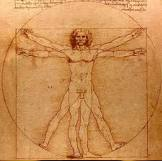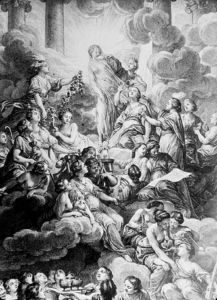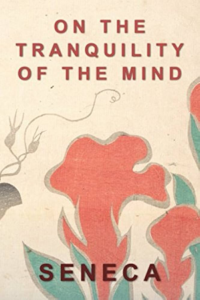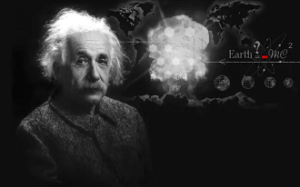
Arquivo para a ‘Noosfera’ Categoria
Serenity and light
There is only light when there is serenity, although Heidegger’s text is not directly linked to his concept of “clearing”, it is indirectly linked, as it calls for reflection, pure thought, one that “meditates” and does not just act.
Heidegger’s text is not directly linked to his concept of “clearing”, it is indirectly linked, as it calls for reflection, pure thought, one that “meditates” and does not just act.
Heidegger clarifies that: “the rootedness (die Bodentändigkeit) of modern Man is threatened in his most intimate essence. Furthermore: the loss of rooting is not caused only by external circumstances and fatalities of fate, nor is it the effect of negligence and the superficial way of Men. The loss of rootedness comes from the spirit of the time in which we were all born” (p. 17), thus is the absence of this clearing.
The domination by ideal and “calculating” models leads to a greater commitment to the gears of reason, than the gears of being and human dignity, going beyond ethics which is deeply linked to the “ethos” of the way of being and the character.
This is not a pure Manichaeism, because this also led and still leads to social and political dualism, but one that excludes the other, the different and forgets their human dignity, we remember Eduardo Galeano’s speech about war and the evil it entails. closes (post).
The pure reasoning of the calculating gear leads to precise business calculations, company management and even certain educational logic, but they forget the foundations of human ethics: respect for life, sociability among everyone and care for the planet.
Evil is thus seen as the absence of light, the impossibility of a clearing that dignifies and shows the truth to men, and this is independent of any rational logic because it is in the diffuse human logic that unites the unequal and equalizes the different.
For Christians, it is fundamental to remember the principle of light that erases all darkness, like a small candle lit in the pitch black, the Christian clearing, thus moving away from error and discord (Jn 3:21): “But whoever acts according to the truth, approaches the light, so that it becomes clear that your actions are carried out in God” and there is nothing more divine than truth.
If Heidegger’s rootedness refers to his loss in the “spirit of the age”, the deeper rootedness is that which comes from human origin, be it anthropological or ontological.
The next and the business
The polycrisis that involves humanity, in the words of Edgar Morin, which was also adopted (from another perspective) by Adam Tooze, professor of History at Yale University.
words of Edgar Morin, which was also adopted (from another perspective) by Adam Tooze, professor of History at Yale University.
In the book Terra Pátria the author has already painted a picture of a reborn nationalism, it is written in the preface of the Brazilian edition written by Juremir Machado da Silva:
“Terra-Pátria, in which Anne-Brigitte Kern collaborated, is the fundamental book for examining the nationalist phenomenon today. Everything is in it: homeland, nation, universalism, identity, ecology, politics, community, etc. The mechanisms for understanding the complex contemporary social network are provided with the clarity usual in Morin’s text” (MORIN, 2003, 14).
However, history has moved in the opposite direction, unable to take a step forward, now wars, ancient utopias and fundamentalist spiritual models (not to be confused with orthodoxy because it is the true foundation of religions and cultures).
The social relationship deteriorates, the blame would be on techniques, individualism or even a wave of demonic possessions, however what happens is simply a lack of an authentic model of solidarity and here utopias and religious cultures must be analyzed.
Utopias because they retroacted models from the beginning of the 20th century, Adam Smith’s nationalism and Lenin’s Bolshevism, religious cultures because they took refuge in fundamentalism.
There is little outside of these perspectives, but they exist, there is hope where each person is treated with dignity, empathy is a model of coexistence and life as a whole treats man as a whole and it is possible to reintegrate him into standards of solidarity and respect.
The relationship with a neighbor is not a business, nor can it dissolve into a “social friendship” which is just a surface of what is truly human, the relationship with the Other.
Not a few authors wrote about this, even Jürgen Habermas addressed the topic, but it concerns the effective relationship between two people and not the generic social or cultural relationship, which generally involve interests and relationships with thought bubbles.
Christian singer Aymeê from Pará went viral when she sang the song “Evangelho dos Phariseus” which talks about child exploitation on the island of Marajó, the fires and the fact that tithe matters more than hearts in many churches that have transformed the message of love into business.
MORIN, E. E KERN, A.B. (2003) Terra-Pátria (Earth-World). Transl. Paulo Azevedo Neves da Silva. Brazil, Porto Alegre : Sulina ed.
Clearing and the illumination of consciousness
There are different experiences of consciousness that are different from the rational, of course they are not free from autosuggestion and in a way they all are, because some level of permission we give to an experience that goes beyond our senses, the musical is the most accepted and common cultural one, the spiritual one is the most rare and subject to fallacies and manipulations, but they all make some sense.
that are different from the rational, of course they are not free from autosuggestion and in a way they all are, because some level of permission we give to an experience that goes beyond our senses, the musical is the most accepted and common cultural one, the spiritual one is the most rare and subject to fallacies and manipulations, but they all make some sense.
The clearing that Heidegger speaks of based on Plato’s myth of the cave is not tied to the rational level, since its ontology is back to Being, and the deepest experience of being will never cease to have a spiritual and cultural touch, but this clearing is strongly linked not to a collective idea, but to the inner and deep Being of each man.
Would it be possible to enlighten conscience in a collective way, what in Christian terms is called “Pentecost”, revival, rest in the spirit and other names, yes and no.
Yes, it is if it is in fact an awareness that leads to human and spiritual elevation, not if it is just self-suggestion through emotional technique and collective suggestion, there must be no falsification of true consciousness and it must not be confused with fanaticism.
The growing global political, cultural and military tension can lead to a state of fanaticism, hatred and social stress never imagined, but it is possible for minds to become alert and a new cultural and spiritual vision to evolve towards a different path, a kind of “help ”.
Walt Whitman was a poet, essayist and journalist from the 19th century, poorly understood and today read and reinterpreted by many authors, although still little understood, he says in his poems:
“As in a faint, for an instant, Another ineffable sun dazzles me,
And all orbs I knew, and brighter orbs unknown,
An instant of the future earth, earth of heaven.”
It can be read on a social level, a cultural change, on a spiritual level (new heavens and a new earth says the biblical reading) and even on a political level.
The apostles of Jesus had this moment provided by the Master himself, they climb Mount Tabor and there they see him illuminated with two other figures (the reading says: Elijah and Moses, it would not be the Trinity) and the ecstasy of consciousness is so high that the apostles Pedro, Tiago and João want to stay there.
Was the Enlightenment an enlightenment?
To analyze the Enlightenment in the light of Western philosophy, it is necessary to read, of course with an open mind, ontological metaphysics, from Cassirer, his criticism and analysis from the heyday of idealism in the 18th century, “who proudly called himself ‘ Century of philosophy’” (Cassirer, 1992).
Western philosophy, it is necessary to read, of course with an open mind, ontological metaphysics, from Cassirer, his criticism and analysis from the heyday of idealism in the 18th century, “who proudly called himself ‘ Century of philosophy’” (Cassirer, 1992).
This philosophy was considered to have “opened the way to that deepest order from which springs, with pure thought, all the intellectual activity of man, and where this activity must find its foundation, according to the profound conviction of the Enlightenment” (Cassirer 1992) .
The author observes that Hegel, considered “the first to take this path” as a philosopher and historian of philosophy, made a forgotten (Cassirer calls it curious) rectification, which diverges from the verdict that “the metaphysics of Hegel himself pronounced regarding the Enlightenment ” (Cassirer, 1992), recognizing its role and making a reconciliation with it (in photo, Frontispiciul for the L’Encyclopédie ou Dictionnaire raisonné des sciences, .
Having Kant as his main influence, Cassirer was also influenced by Herman Cohen (great exponent of neo-Kantianism at the beginning of the 20th century) and Paul Nartop (one of the founders of the Marburg school) and thus remained trapped in the idealism of neo-Kantianism, but there was still influences on the thoughts of Heidegger, Hans Georg Gadamer and Hartmann.
The scientific question in the 18th century was to find “a determined border between the mathematical spirit and the philosophical spirit” (Cassirer, 1992, p. 34), thus beginning a doubt that would last until the beginning of the 20th century when David Hilbert in a Mathematics Conference announced 23 problems that mathematics should solve to be considered complete, among them the second problem was the consistency of the axioms of arithmetic, that is, that arithmetic could solve any problem that was enumerable.
It was Kurt Gödel who demonstrated that this problem of the finite proof of the consistency of arithmetic is demonstrably impossible, in his second Incompleteness Theorem, which became known as Gödel’s Paradox, the system is either complete or finite, never both.
To help this collapse of scientific rationalism, quantum physics also proposed through Werner Heisenberg the uncertainty principle, which announced that it was not possible to affirm the position of an atom or an atomic particle in a given situation.
Idealism is still a strong current, even in scientific circles, but its logical, physical and mathematical bases have already been dismantled by science itself, philosophers of Science such as Karl Popper, Tomas Kuhn and Imre Lakatos have already announced new postulates.
The consensus is that human thought needs a broader vision, a worldview that is not limited to the so-called exact sciences, recovers the importance of language, the study of Being and a transdisciplinary vision that releases the narrow limits of each area of knowledge. , without ceasing to admit the mysteries, beliefs and original cultures.
Cassirer, E. (1992) The philosophy of the Enlightenment. Trans. Álvaro Cabral, Campinas: Editora Unicamp.
Healing minds and hearts
It is increasingly common to appeal to material goods, as we close in on ourselves and have a false idea about what happiness is, wounded souls and hearts that seek happiness where it is not found, it may be a temporary consolation, but it is not happiness, happiness balanced.
goods, as we close in on ourselves and have a false idea about what happiness is, wounded souls and hearts that seek happiness where it is not found, it may be a temporary consolation, but it is not happiness, happiness balanced.
Another book by Seneca that is quite fundamental to his thinking is about the tranquility of the soul, modern man lives in exteriority, mistakenly called objectivity or materiality, because things (beings) are part of ontological aspects and must be thought of and cultivated appropriately in interiority. , which is not subjectivity, but soul.
Said the Roman philosopher, who we posted yesterday about Wrath, now about the soul:
“If man had the opportunity to look inside himself, how he would torture himself, he would confess the truth and say: “Everything I have done up to now, I would prefer if it had not been done; When I think about everything I said, I envy the dumb; everything I desired, the curse of my enemies; everything I feared. O righteous gods! Better not to have wanted to. I made many enemies, and hatred replaced friendship (if there is friendship between evil people), and I’m not even friends with myself.
Although written at the beginning of the Christian era, the author Of the tranquility of the soul, reflects the difficulty it is for the common man and also for the wise man to maintain his serenity, faced with a spectacle of injustice and baseness (see how old this is), which he witnesses every day, is precisely the counterpoint to Anger, hatred and confrontation.
The text begins with an imaginary letter written by Sereno (of course the name is on purpose): “I will tell you what is happening to me, and you will find a name for this illness”, and at the end he states: “Sometimes, my soul rises with the magnitude of thought, becomes greedy for words and aspires to heights. So the speech is no longer mine [emphasis added]. Forgetting about the norms and rigorous criteria, I stand up and speak with a mouth that is no longer mine.”
From then on, he will reflect on how to overcome obstacles that prevent peace.
Although the discourse is moralistic and ethical, and it is no less important for this reason, the elevation that Seneca sought cannot find any other place than in a spiritual asceticism, it is also found in other cultures, Buddhism is an elevation on the path of virtues, Ghandi used the peace as a political exercise to lead India, and in the case of Christianity it is the “cures” of Jesus.
The Biblical text says, when they see the healing of a deaf-mute (Mc 7,37): “He does all things well. He makes the deaf hear and the mute speak”, and he also cured “unclean” lepers.
Sêneca. (2009) Da Tranquilidade da Alma (wordpress.com) (portuguese). transl. Lucia Sá Rebello e Ellen Itanajara Neves Vranas. Brazil, Porto Alegre: LP&M Pocket.
About Wrath and Hope
The ancient Roman philosopher Seneca  (4 BC – 65 AD) wrote a beautiful essay On Wrath which, although it is in three books, can be divided into two parts, it is addressed to his older brother Gallio, the first part deals with a theoretical issue ( I-II.17) and talks about the horrors of Wrath and its definitions, the second part gives tips on how to calm people, both children and adults, using real cases as examples.
(4 BC – 65 AD) wrote a beautiful essay On Wrath which, although it is in three books, can be divided into two parts, it is addressed to his older brother Gallio, the first part deals with a theoretical issue ( I-II.17) and talks about the horrors of Wrath and its definitions, the second part gives tips on how to calm people, both children and adults, using real cases as examples.
Although the texts are very interesting and intelligent, there is an essential gap that cannot be achieved through spiritual asceticism, the hope that the context will be changed by actions that go beyond the personal, social or group level, raising the level of spiritual health of a person. group.
According to the philosopher, a great man should never become angry and, when it is not possible to avoid anger, he should try to calm down as soon as possible, his famous phrase is:
“No man becomes more courageous through anger, except one who, without anger, would not have been courageous: anger, therefore, does not come to help courage, but to take its place” (I.13).
However, in social life there are situations in which good and fair men are subject to the power of authoritarian, presumptuous and arrogant men who humiliate, exploit and mistreat humble people.
To this the Stoic responds with another sentence; “Let nothing be allowed to you while you are angry. For what reason? Because he will want everything to be allowed.” (III.12), said in a modern way, if we lose our calm when pointing out a mistake, we can lose our reason in reacting to the error.
Hope is fundamental when an entire social, political or even religious situation becomes difficult and points to a path that seems to be without that of destruction, error and fear, it is not about being in conformity, we wrote in the previous post about the disposition which precedes the intention, but the intention to calm propagate peace and avoid anger becomes both hope and the possibility of viable course correction, anger does not, initiates or expands the confrontation.
It is necessary to believe that the union of forces that desire positive change has a light that is superior to the set of human forces, because they can improve the “disposition”, the climate in favor of sensible and constructive attitudes and raise the moral standard in a virtuous circle .
Change of route and power
Today is the day of the city of São Paulo, and the day of the apostle Paul is also celebrated by most Christians, not a coincidence as the name of the city was given after the apostle, during the time of Portuguese colonization in Brazil.
of the apostle Paul is also celebrated by most Christians, not a coincidence as the name of the city was given after the apostle, during the time of Portuguese colonization in Brazil.
His name was Saul of Tarsus, a city in Cilicia where he was born in 5 AD and was a highly educated Jew who fought Christianity as a Christian sect, being one of those responsible for the death of Stephen, the first Christian martyr.
It happened that on the way to Damascus, through a horse falling, a figure used to this day to indicate people who change their mentality and route, he had a mystical revelation and became blind, and in this vision he was instructed to go to meet Ananias, and his view has been restored.
From then on, he is called Paul and from then on he will be responsible for taking the apostolate to the Gentiles, as those who were not Jews were called, since these were the people chosen by God, so Christianity leaves its Jewish limits and arrives even Greeks, Romans and other people who lived in the Roman Empire.
His elaboration of thought will then go beyond the limits of Jewish customs, although with some controversies such as the need for circumcision, he will be the first and important theologian of Christianity, having influenced thinkers such as Augustine of Hippo and Thomas Aquinas, important for Christianity, but also for philosophy.
Paul will understand that this is not a fight for human power nor a fight against the domains of temporal power, but rather the fight against the earthly mentality that does not reach values beyond power, wealth and human passions.
Without Paul, Christianity probably would not have left the Jewish domains, nor would it have reached Greece, Rome and the entire Roman Empire and then the entire world, despite the persecution of local powers it expanded in the world of people and took root within cultures.
The civilizing and human route cannot aim only at taking power and submitting to the values of this power, without a solid human base, with timeless values, power is confined to the dimension of weapons and oppression.
Peace, harmony between peoples, respect for cultural diversity cannot be subjected to the power of weapons and oppression, the lack of freedom and the absence of dialogue and respect.
The time of the clearing
If we are in times unsuitable for thought and intelligence, unsuitable for human and moral values, it means that it is also a time of clearing, it is a time that many consciences and men will be able to awaken and see and find the clearing.
intelligence, unsuitable for human and moral values, it means that it is also a time of clearing, it is a time that many consciences and men will be able to awaken and see and find the clearing.
For this, a metanoia is necessary in philosophical, political, everyday and even religious thinking, remember that the prophets were killed and ignored precisely by “religious” people.
The threshold of an unlimited civilizing and humanitarian crisis is close, but if we look at everyday culture, we talked about this so much from the very Brazilian Ariano Suassuna to the Englishman Anthony Daniels in previous posts, politics and thought also seem polarized between two extremes that in many values are confused, and one of them is war and the desire for power.
Even those who invoke peace hide interests of power, of greed for greater wealth and oppression of those they believe to protect, it is a sad scenario of little light and where men of good will who desire a less dark look at the future should have.
Looking at the etymology of the word clearing in Heidegger’s philosophy, it comes from the German word Lichtung, whose meaning, in addition to clearing in the forest (he himself lived for some years in the black forest of Germany), its root Licht is the word for light, which will mean hidden things, or entities whose truth must come to light, as some translators use as unveiling.
What a propitious time this is, and why we are approaching it, because whenever the prophetic words of thinkers and mystics who ask for a change of course in humanity have not been heard, this time of darkness approaches followed by a great clearing.
In the biblical passage of Mark 1:1-19, Jesus clarifies that the death of John the Baptist is this sign of the clearing, that Herod asked for the head on a platter for his wife after his daughter Herodias danced for the king, the death of the last and greatest prophet begins a new era.
The reading says (Mc 1,15): “Time has already come to an end and the Kingdom of God is near. Convert yourselves and believe in the Gospel”, and for those who believe in the biblical clearing, it is the time of change.
Time to recover and live true humanitarian values, even if they are not Christian, the desire for peace, to look at Others with the dignity that each one has and to live justice
Globalism or Universalism, a new period
The current crisis clearly points to a civilizational crisis, Eurocentric and Enlightenment visions already showed their exhaustion in previous periods, by thinkers such as Nietzsche and Shopenhauer who sought elements in Western philosophy, but quantum physics and studies on an era called “anthropocene ” such as the transdisciplinary studies of Anna Tsing, founder of AURA (Arhus University Research on the Anthropocene) and one of the editors of the Feral Atlas (feralatlas.org) published by Stanford University Press.
crisis, Eurocentric and Enlightenment visions already showed their exhaustion in previous periods, by thinkers such as Nietzsche and Shopenhauer who sought elements in Western philosophy, but quantum physics and studies on an era called “anthropocene ” such as the transdisciplinary studies of Anna Tsing, founder of AURA (Arhus University Research on the Anthropocene) and one of the editors of the Feral Atlas (feralatlas.org) published by Stanford University Press.
Thus, the theories of globalism and NWO (New World Order) are nothing more than conspiracy theories, although the political forces at play may also have influences from various political organizations that desire new forms of imperialism and population control.
Simply looking at an increasingly complex universe in which old Copernican and Newtonian paradigms, of great influence on Western thought, die, show a much more complex reality, such as string theory pointed out by Michio Kaku as one of the few alternatives to explain the universe as we now see it through megatelescopes.
Even Einstein’s idea of understanding the mind of God is very far from what a theory of Everything and the Whole really means, where it is almost impossible not to think of a Being with an unimaginable intelligence who created everything, a simple energy or chance is simplistic Too many and even theoretical physicists such as Albert Einstein, Stephen Hawking and Michio Kaku have admitted this hypothesis.
However, it is difficult to imagine a mega-intelligent consciousness in the face of such primary reasoning that involves the majority of Christian thinkers, figures such as Augustine of Hippo, Thomas Aquinas, Duns Scottus and Boethius, these last two are considered saints by Catholics, seem to be overshadowed by a fundamentalist primarism that ignores the complex universe we live in and which still reveals itself to be incomprehensible within human limits.
For serious religious people, it would be enough to examine the visit of the wise (see youtube) men (people from other beliefs and cultures) who came to worship the newborn in Bethlehem to become aware that God is universal and is not limited to human dictates and customs, but there is a lot of false prophecy.
The limit of a true Christianity should be as Augustine of Hippo said: “the limit of Love is to love without limits”, this should be essential to a true God of Love.
The 3 Wise kings – Documentary Discovery Civilization l Dublado l – YouTube
Physics and the mind of God
The basic original question of man is language, but when searching for information man was forced to look at the universe and try to understand its enigmas, geocentrism (the earth as the center of everything), heliocentrism (the sun as the center of everything) dominated human language and thought for millennia, throughout this time anthropocentrism dominated human conception and with this the attempt to dominate all of nature grew.
but when searching for information man was forced to look at the universe and try to understand its enigmas, geocentrism (the earth as the center of everything), heliocentrism (the sun as the center of everything) dominated human language and thought for millennia, throughout this time anthropocentrism dominated human conception and with this the attempt to dominate all of nature grew.
However, nature is indomitable, modernity was an attempt to dominate the forces of nature and assert anthropocentrism over it, but it has its own logic, and when looking more deeply the universe that had a mythological explanation moved to a more focused focus. clear of eschatological inquiry: where did we come from and where are we going.
The book by theoretical physicist Michio Kaku: “The God equation” takes a deep dive into this issue from contemporary physics and cosmology, the physicist is the great theorist of string physics (Hyperspace is one of his books), professor at Harvard and host of programs on Discovery Channel.
In his book he explains the quest of physicists such as Stephen Hawking and Albert Einstein to try to explain all the forces of the cosmos, what is called the theory of everything, and which in its current formulation is called the Standard Physics Theory, the discovery of quantum forces of particles, including the Higgs boson, the vision of the photon with a particle of zero mass, the particles of terrestrial magnetism helped this unification, but that’s not all.
Many physicists have failed, the quantum explanation breaks with the idea of “thing” that some dualist authors continue to have, the “quantum” is something beyond it has a third state, called in physics the “third included” where a particle is between the Being and Non-Being and is not dual.
If this state of quantum physics is already a reality, what the particles actually are is still a mystery, and the “most promising candidate (and, in my opinion, the only candidate) is string theory, which says that the universe it is not made of point particles, but rather of tiny vibrating strings, where each mode of vibration corresponds to a subatomic particle” (Kaku, 2022).
We would need a microscope powerful enough to see electrons, quarks, neutrinos, etc. they are nothing more than vibrations of tiny loops, similar to rubber bands. If we put these elastic bands to vibrate countless times and in different ways, we will eventually be able to create all the subatomic particles in the universe, and this means that the laws of physics are summarized in these modes of vibration of the small strings.
Kaku says in the introduction to his book: “chemistry is a set of melodies that we can play with them. The universe is a symphony. The mind of God, which Einstein eloquently referred to, is a cosmic music that spreads across space-time” (Kaku, 2022).
Kaku, Michio. 2022. A equação de Deus (The God equation). Trans. Alexandre Cherman, Brazil, R.J.: ed. Record, 2022.

